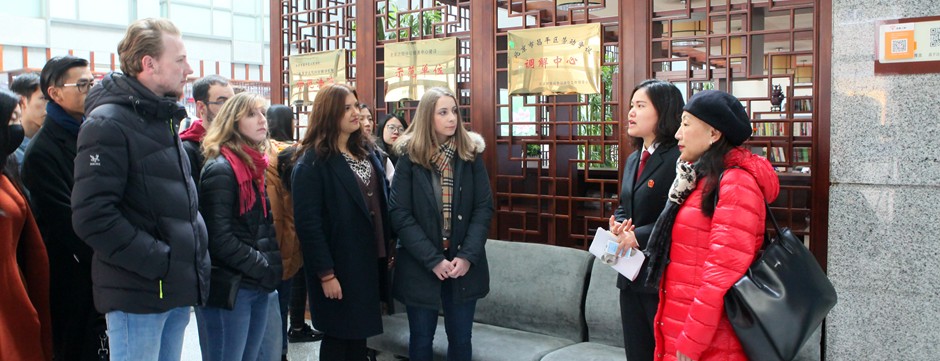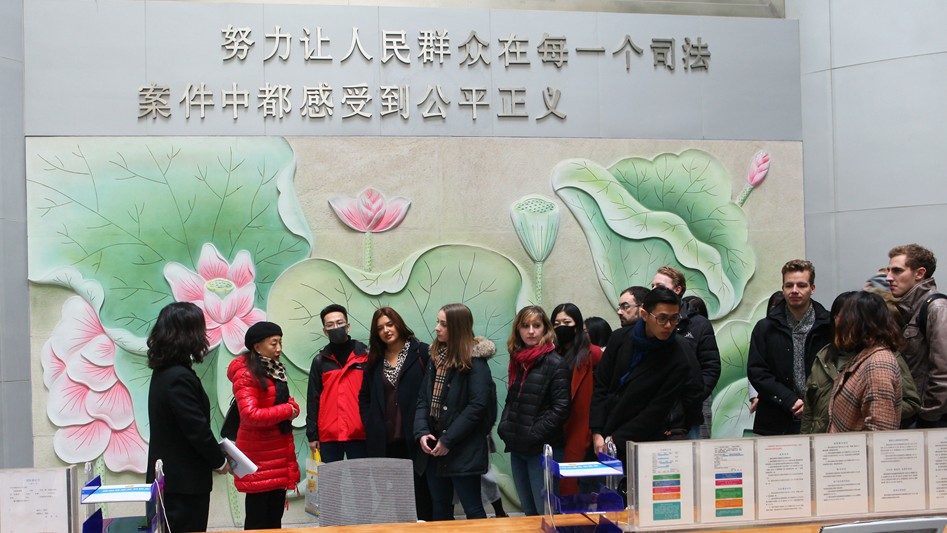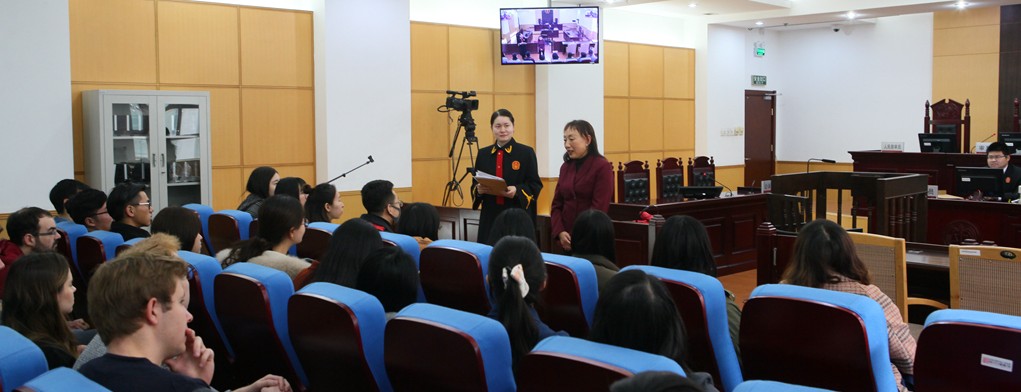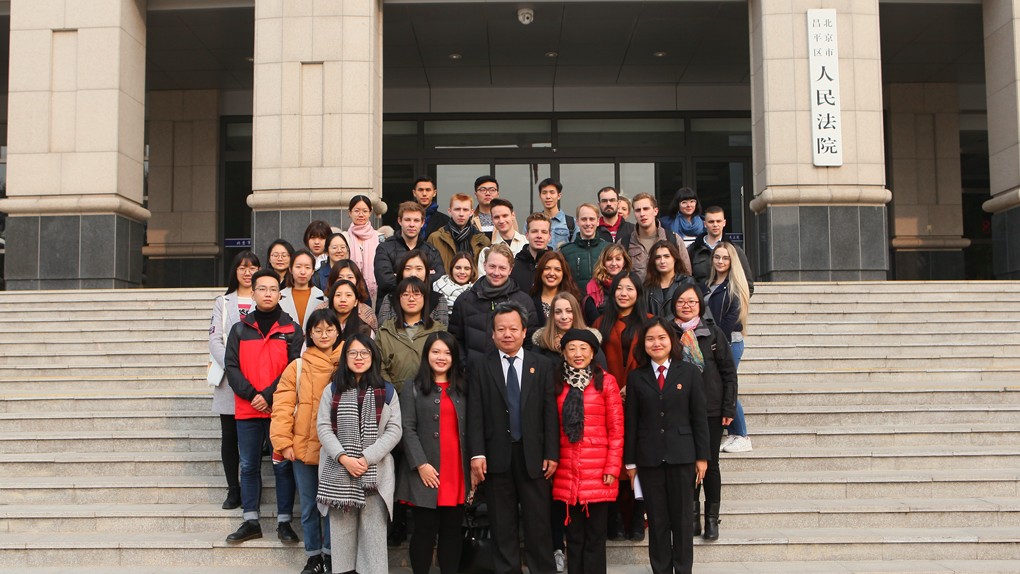In order to develop the quality and practical ability of the students from the China-EU School of Law, with the support of the the Beijing Changping District People's Court, the Chinese Criminal Justice course, taught in English, has set up a hearing especially for the public trial of criminal cases. It allowed students to communicate with the judges on the spot under the auspices of the professor and get in touch with the practice of judicial trials in China, so as to achieve the purpose of the course in combining theory and practice.
This trial hearing was applied by the China-EU School of Law of China University of Political Science and Law and approved by the Foreign Affairs Office of the Beijing Higher People's Court. At 10am on 13 November 2018, under the guidance of Professor Yue Liling and teacher Ma Anna, students from 2018 intakea rrived at the Beijing Changping District People's Court.

Before the trial, the judges warmly welcomed the teachers and students. First they guided the teachers and students to the courtroom and focused on introducing the litigation service hall. The parties and lawyers complete all the legal proceedings (except the trial itself) in the various rooms of the second-floor lobby. We noticed a self-printing service corner where document samples and litigation documents can be checked for free- I think this demonstrates the dignity and justice of the legal process.There is also an antique waiting area and amother-and-baby room. The lotus background wall portrays how "harmony is the most precious". Every detail reflects humanity in the process and truly realises the professional, efficient and convenient litigation services.

At 10:30 the trial officially began. All the teachers and students jointly attended the trial in which the accused, Wang, was suspected of theft. The bench was composed of the Chief Judge Shuang Yuer and two people's jurors. The Beijing Changping District People's Procurator prosecuted on behalf of the state and the legal aid lawyer defended the accused.
The accused, Wang, was twice sentenced to fixed-term imprisonment for crimes of theft and robbery. Shortly after the theft Wang turned over the wall and drilled the window to re-implement the theft. He found the car key and drove away the plaintiff’s Land Rover Car.It was identified that the stolen vehicle was worth more than RMB 550,000. Under the auspices of the presiding judge, the trial went through the following steps in turn: the procurator read out the indictment, the defendant stated his criminal act, the procurator presented the physical evidence to the court, declared the documentary evidence and the witness testimony, interrogated the accused in the court, and the final statements of the parties were read. Five minutes after the adjournment, the collegiate bench pronounceda judgment in court.

After the trial, all the students and Judge Shuang Yuer had a further face-to-face exchange with the translation of Prof.Yue Liling.
Since the students had already read the English indictment before the trial, they had a basic understanding of the case. Focusing on the details of the evidence, the sentencing considerations, the accused’s situation, the performance of the prosecution and the defence, and so on, the students actively asked questions which were really sharp, and Judge ShuangYuer considerately answered them one by one.
A number of European students, for example, Julia and Moritz from the University of Hamburg in Germany, actively asked questions about the details of the trial process. For example, how was the legalaidl awyer selected and at what specific time did the theft occurr; how did the suspect turned over the wall; whether the windows of the house were open or not; and what kind of standard of amount would constitute “extremely large."
Yu Donghang and ChenZhiyan from the 2018 intake of the China-EU School of Law also combined with the judicatory practice and the relevant provisions of Criminal Procedure Law in China to express their doubts and opinions and asked questions including how the identity of the suspect is determined, how a confession is made and how recidivism and frankness is considered in order to determine the penalty?
When the the two-hour tour of the Beijing Changping District People's Court was over the teachers and students expressed their sincere appreciation for the judges’ time. In the afternoon discussion class, the teachers and students continued to explore, in-depth, the details of the case -such as the motivation of the accused, the effectiveness of the evidence, the background of the defendant's family and his previous conviction. With the close connection between the theory and judicial practice, students have deepened their understanding of the Chinese criminal justice system.
It is worth mentioning that during the auditing process, students watched the videos of the whole trial through the court's live trial broadcast system for the first time,and also watched the surveillance video in the cross-examination stage.The clear and intuitive video left a deep impression on the teachers and students in the gallery, and also made Chinese and European students fully appreciate the remarkable achievements of the construction of the courts in China.

Article by Qin Mengyuan(CESL double master students from 2018 intake)
Photo bythe Beijing Changping District People's Court,
Edited by Caoimhe Cotter
